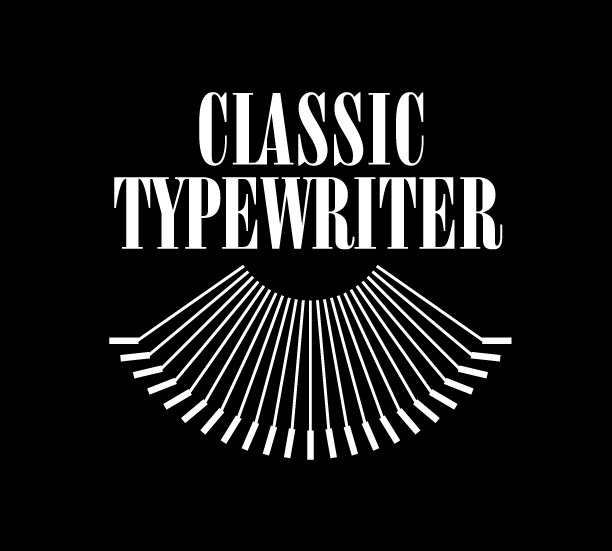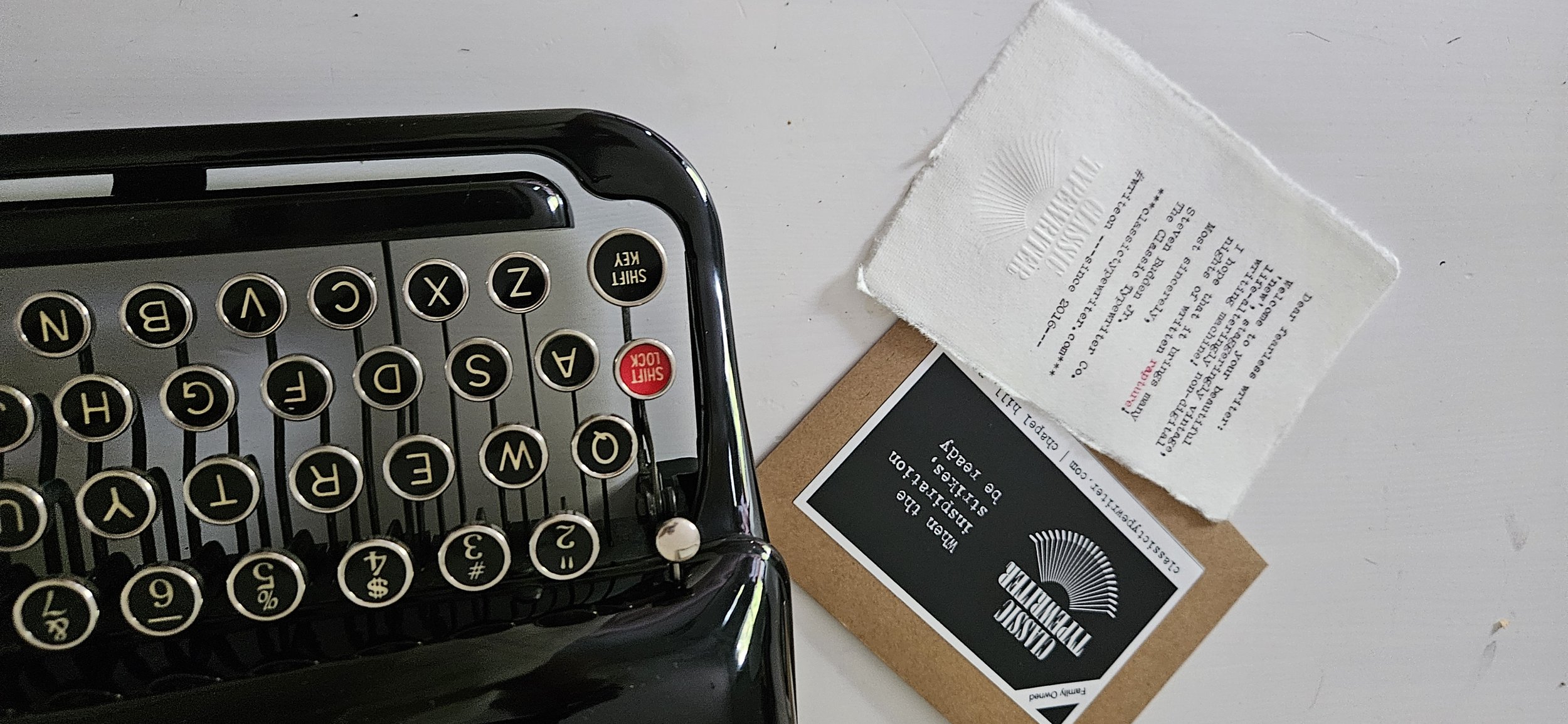Children, Teens, and Typewriters
My daughter uses one whenever she has a hit of inspiration. Her poetry class in high school uses a bevy of Smith Coronas to carve out form from the void. Fortunately, their teacher brings in a dozen for them to hack away on.
A college poetry class is taught in Florida on vintage typewriters. The teacher personally supplies them, and one includes a Mountain Ash Scarlet Corona Four from the 20’s. I know because I see them come in for servicing.
It’s not the system that invites vintage typewriters in, it’s the people. The people get around the system.
In the younger grades, children love to type out letters and lists of magical potions, recipes for muffins and other sundries, and rows of letters. (Do you remember those days).
I bring this all up because a culture’s future really is dependent upon the education of its children. Some branches of education are all about sitting a child in front of Google Classroom and letting propaganda run its course. (Dare I doubt the giants?)
I have two daughters in Waldorf school, and they don’t use screens until high school. (Except for that little crack in the armor when Covid fell and children learned from home via zoom). Meaning, they chatted on discord for 8 hours per day.
I think it’s critical to learn technology. I also think it’s critical to learn to think. Sometimes, the one gets in the way of the other. For instance, children spend more time on computers now, and come out less capable of thinking, and certainly less capable of spelling.
I myself had to teach myself how to spell again in my twenties. It was a revelation. I was actually scared, for a moment, to reach out for the vintage typewriter keys, because I’d been hammered with a fear of misspellings. What if a curator found my manuscript later, and discovered that I didn’t know how to spell? Ridiculous, I know, on all counts. Also, there are spelling mistakes in even the greatest manuscripts.
It’s tragic for some of us that children will never know of these beautiful machines that filled our lives with meaning. Fortunately, some are still slipping through the cracks, reaching people in the matrix. To stumble upon one of these strange machines, it is like a totemic contraption with near-mystical properties and endless possibilities. In the age of the digital, a polaroid is suddenly magical. A few years ago, it was old fashioned. A sewing machine is cool again. A tube amplifier is the tool of a rock legend. Etc.
We’ve thrown away things that had magic and beauty in them, for an unfulfilled promise. Don’t get me wrong, ai can do cool things, and will continue to evolve at a breakneck pace. However, my daughter walking down the street with her little Polaroid camera chanting ‘free pictures for sale’ is far more memorable and magical to me. Which one is better for the human race, I wonder? Or my older daughter typing murder stories on her Olympia SF typewriter.
You don’t have to throw every screen into the ocean. We just need to find a way to strike a balanced chord. And definitely find SOME respite from screens. Otherwise, some odd agendas are molding the mind at every waking moment.
When a child asks 'how do I change the font’, as they hover over a typewriter… they’re surprisingly delighted when I say ‘you can’t!’ A lack of distracting options? Now what happens.
Well they sit, you sit, we sit, before that blank page, and the words that flow forth are full of infinite possibilities. Just words. ‘Just words’? Words are everything.
As Werner Erhard said: ‘There are only two things, semantics and nothing.’
Exactly.
Write on, my friend.
Steven Budden Jr.

